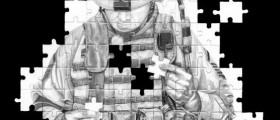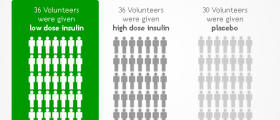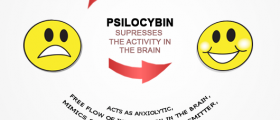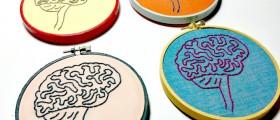The study of veterans from the first Gulf war, in which their brains had been scanned, showed that two regions of the brain involved in memory and thinking appear to be smaller among those mostly affected by Gulf war syndrome illnesses.
Scientists suspect but cannot say with certainty that these neurological differences may have been caused by exposure to toxic chemicals such as nerve agents and pesticides used during the conflict.
It is also very likely that these individuals’ brain anatomy made them more likely to suffer health problems when they came into contact with battlefield chemicals.
Among 36 veterans, half reported more than five symptoms, such as joint pain, fatigue, forgetfulness, headaches, nausea and skin rashes while the other half reported fewer than five symptoms. Brain scans showed that the size of the entire cortex, or grey matter, was on average 5% smaller in the first group and that the brain area called the cingulate gyrus was 6% smaller. Veterans with the worst symptoms also scored between 12 and 15% lower on learning and memory tests.
Director of the Centre for Military Health Research at King's College London received the study results with caution. He said that the study was supposed to be done ten years ago and that so many other things have happened until then; the veterans are older, many drink, are depressed, and all of these things can change the size of regions of the brain and impair cognitive functioning.
He also doesn’t believe that this and similar studies will lead to any treatment of the Gulf veterans.
Scientists suspect but cannot say with certainty that these neurological differences may have been caused by exposure to toxic chemicals such as nerve agents and pesticides used during the conflict.
It is also very likely that these individuals’ brain anatomy made them more likely to suffer health problems when they came into contact with battlefield chemicals.
Among 36 veterans, half reported more than five symptoms, such as joint pain, fatigue, forgetfulness, headaches, nausea and skin rashes while the other half reported fewer than five symptoms. Brain scans showed that the size of the entire cortex, or grey matter, was on average 5% smaller in the first group and that the brain area called the cingulate gyrus was 6% smaller. Veterans with the worst symptoms also scored between 12 and 15% lower on learning and memory tests.
Director of the Centre for Military Health Research at King's College London received the study results with caution. He said that the study was supposed to be done ten years ago and that so many other things have happened until then; the veterans are older, many drink, are depressed, and all of these things can change the size of regions of the brain and impair cognitive functioning.
He also doesn’t believe that this and similar studies will lead to any treatment of the Gulf veterans.
Loading...
















